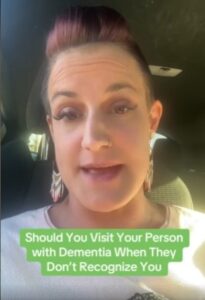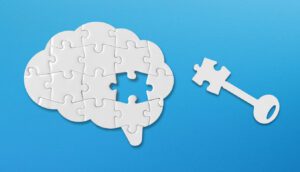Caregiver Topics
How to Communicate with an Aging Parent Who Won’t Listen
As parents (or any older person you care for) age, it can become challenging to talk to them at times, especially when you need to talk about topics like growing older, or changes in lifestyle that are needed due to illness, age, or physical limitations. You may be trying your best to communicate something important…
Read MoreVideo Tip: Should You Visit Your Person with Dementia When They Don’t Recognize You?
Have you ever wondered if you should still visit your person with dementia even if they don’t always recognize you? Even though your loved one may not know your name or your connection to them any longer, they can still sense that you’re an important person in their life. Their eyes can still light up,…
Read MoreBed Sores: Causes, Warning Signs, and Prevention
Older adults with limited mobility or those confined to bed are at serious risk of developing bed sores (also called pressure sores or pressure ulcers). Over time, as bones put continuous pressure on internal tissues, blood circulation is cut off, tissue is penetrated, and skin breaks down. Bed sores are typically found on hips, elbows,…
Read More5 Benefits of an Early Diagnosis of Alzheimer’s or Dementia
It can be frightening when you notice your older adult begin to show signs of cognitive impairment, such as judgment problems or memory loss. If they start behaving strangely, the first thought that often comes to mind is whether this might be the onset of Alzheimer’s disease or dementia. Rather than become paralyzed with fear…
Read MoreHelpful Dementia Communication Techniques
Conversations with someone who suffers from dementia or Alzheimer’s can be difficult, emotional, and exhausting – especially when that person is a close relative. Learning some simple yet effective communication techniques can make it much easier to connect and enjoy meaningful time together. Ground yourself. Before engaging in conversation, take a moment to prepare yourself…
Read More6 Hygiene Tips for Bed-Bound Seniors
Being confined to your bed, whether due to chronic illness, injury, disability, or advanced age, comes with many challenges. Personal hygiene can often top the list. Feeling clean and presentable is important for both physical and mental health. Here are some helpful tips for caregivers assisting those who are bedbound with hygiene issues: Bathe regularly.…
Read MoreWeighted Blankets for Dementia Improve Sleep and Reduce Anxiety
Common side effects among older adults suffering from Alzheimer’s or dementia include anxiety, agitation, and disturbed sleep. One simple, non-drug solution that can help with all three symptoms is a weighted blanket or lap pad. It can be used day or night to provide comfort, reduce anxiety, promote deep sleep, and calm nerves. Though it…
Read More6 Ways to Convince Seniors to Take Medication
It can be challenging to get seniors to take their medication, even if it’s absolutely essential for their health. The reasons behind their resistance vary widely, ranging from refusing on principle (such as “I’ve never taken medicine in my life, and I’m certainly not starting now!”), to being suspicious (such as fears of being poisoned…
Read MoreWhat’s the Difference Between Alzheimer’s and Dementia?
Although the words “Alzheimer’s” and “dementia” are often used interchangeably, they aren’t quite the same thing. It’s important to know the differences between their symptoms and how they progress, so you can find more effective ways to manage symptoms and make more informed care decisions for your loved one. Dementia is an umbrella term for…
Read MoreHow Reminiscence Therapy Can Help Seniors with Dementia
Those suffering from dementia typically lose their short-term memory, but often can still recall memories from longer ago. That’s why reminiscing, or sharing memories from the past, can be such an enjoyable way to connect with these seniors. It helps them feel valued, content, and peaceful by recollecting happier times from bygone days. Because it’s…
Read More









